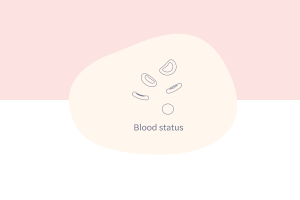Sex Hormone Binding Globulin (SHBG)
Hormones
What is SHBG?
Sex Hormone Binding Globulin (SHBG) is a protein found in the blood of both men and women that binds and transports sex hormones such as testosterone, dihydrotestosterone (DHT), and oestradiol around the body. It is mainly produced by the liver.
SHBG tends to increase in scenarios where there are increased levels of the hormones mentioned before to “mop up” or bind to the excess hormone in the blood. Variation in the levels of SHBG can also be seen due to a number of different reasons, such as pregnancy, age, biological sex or weight, but can also be associated with disorders affecting the liver, thyroid or pituitary gland.
In short, it is useful to analyse SHBG levels in the blood to:
-
Estimate the amount of free testosterone in the blood in both men and women;
-
Investigate symptoms of low testosterone in men, especially when symptoms and total testosterone levels do not match;
-
Investigate possible symptoms of PCOS in women.
Why is this analysis important?
The SHBG test is an important test in both men and women. Though it binds to several sex hormones its most important role is its interaction and binding with testosterone and if often ordered together with a testosterone test when there is a clinical indication to perform the test.
In polycystic ovary syndrome (PCOS), a condition that affects up to 1 in 10 women in the UK, there can be a reduction in SHBG which leads to increased levels of free testosterone in the blood. This can produce unwanted symptoms such as weight gain, increased body hair growth and problems with the menstrual cycle.
Signs or symptoms which may be related to SHBG changes include:
-
Changes in hair growth or new areas of hair growth
-
Changes in weightLoss of muscle mass
-
Changes in sex drive
-
Changes in mood
-
Irregular periods (in women)
Results
The reference range for SHBG levels in the blood can be different depending on the laboratory and technique used. Doctors usually also take into account a number of factors when evaluating SHBG values.
High SHBG levels in the blood may be associated with:
-
Liver cirrhosis
-
Hyperthyroidism (overactive thyroid)
-
Oestrogen use (contraceptive pills or hormone replacement therapy)
-
Pregnancy
Low SHBG levels in the blood may be associated with:
-
Obesity
-
Hypothyroidism (underactive thyroid)
-
Androgen use
-
Nephrotic syndrome
Other conditions like Cushing disease, where there is excess cortisol or acromegaly, where there is increased growth hormone (GH) production can also result in low SHBG.
SHBG levels are also affected by other hormones or proteins in our body such as insulin. It is thought that reduced levels of SHBG can be linked to insulin resistance and the possibility of developing type 2 diabetes.
Other Considerations
SHBG levels fluctuate based on age, weight, if you have other conditions such as thyroid or liver disease or if you are taking certain medications such as oral contraceptive pills. For this reason it is important you let our doctors know if you are on any regular medication or have any relevant past medical history.









